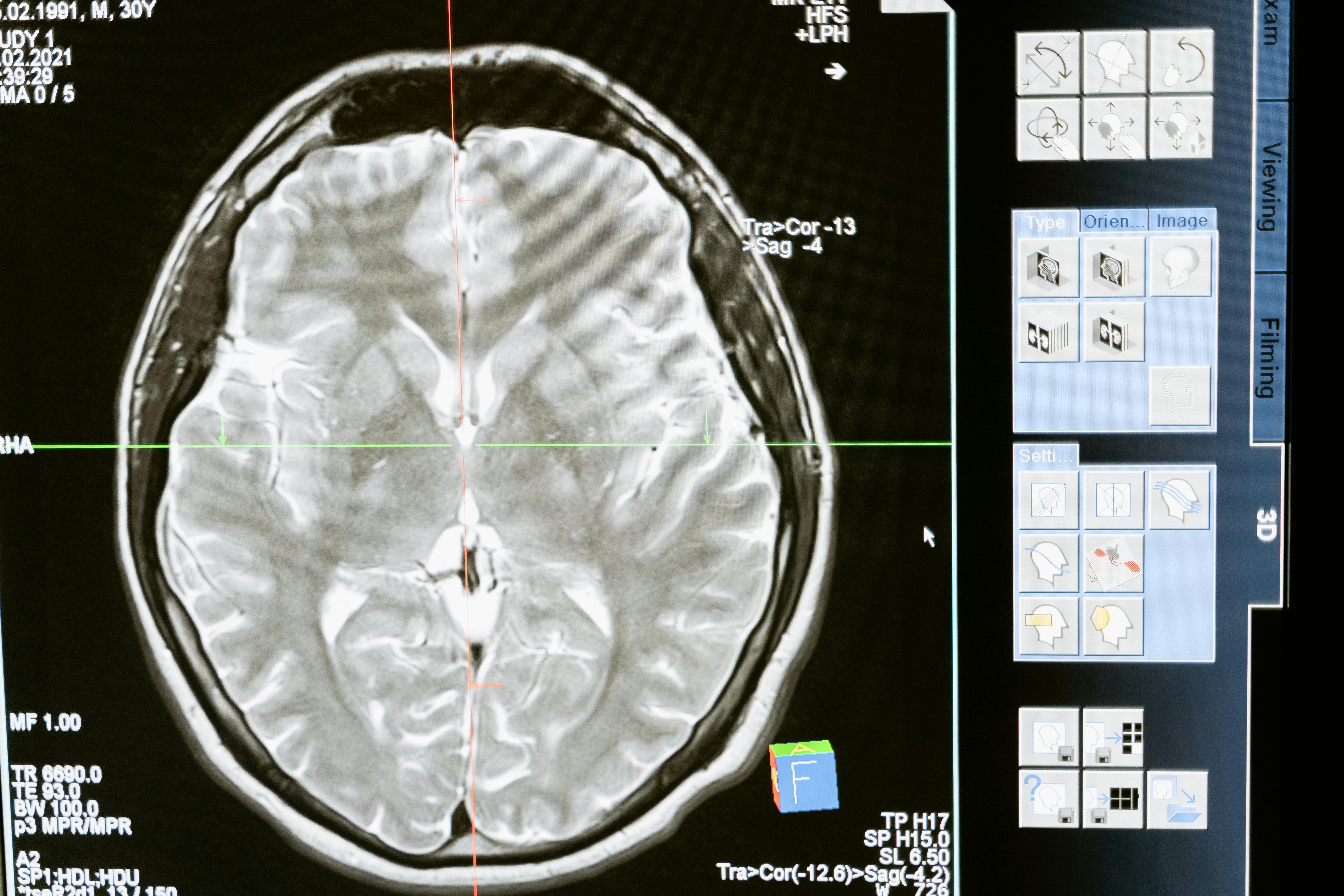
Demystifying Psychometric Testing: Unveiling its Benefits and Pros/Cons
Psychometric testing has gained significant popularity in recent years, not only in the field of psychology but also in various industries. It refers to the scientific method of measuring an individual's mental capabilities, behavioral patterns, and preferences. These tests are conducted to understand and assess numerous aspects such as intelligence, personality traits, emotional well-being, aptitude, and cognitive abilities.
The purpose of psychometric testing is to provide precise and reliable information about an individual's psychological makeup. These assessments serve as crucial tools for different purposes, including academic evaluation, career development, employee selection and retention, counseling practices, clinical diagnoses, and even self-understanding.
To administer psychometric tests accurately, professionals often employ standardized questionnaires and structured formats. There are various types of psychometric tests that yield different outcomes depending on the context and objectives of the assessment. Some common examples include ability or aptitude tests, personality assessments, spatial awareness tests, numerical reasoning tests, critical thinking tests, and situational judgment tests.
One advantage of psychometric testing is its objective nature. By relying on empirical data obtained through well-developed test instruments, it minimizes potential bias and subjective judgment. This enhances fairness in comparison and evaluation of individuals by reducing the influence of personal opinions or preconceived notions.
Psychometric tests typically involve multiple-choice questions or scale-based responses. They are designed in a way that enables efficient measurement of quantitative aspects such as cognitive abilities and qualitative aspects like personality characteristics. The scoring process involves comparing an individual's results against a relevant norm group, which gives an accurate representation of their performance or psychological traits in relation to the wider population.
When interpreting psychometric test results, it is essential to consider the limitations that exist within these tests. While they offer valuable insights into various psychological factors, they may not serve as an absolute measure of an individual's true capabilities or personality traits. Moreover, psychometric tests are most effective when combined with other assessment methods and supported by professional judgment and expertise.
It is crucial to approach psychometric testing with an open mind and acknowledge the complex nature of human behavior. Test results should be considered as a piece of the puzzle, not the ultimate determinant of a person's abilities or personality. Furthermore, confidentiality and ethical standards must be upheld throughout the administration and interpretation of these tests to respect individuals' privacy rights.
In conclusion, an introduction to psychometric testing highlights its significance as a reliable tool for understanding various aspects of an individual's psychological makeup. From academia to employee recruitment assessments, these tests provide a valuable platform for objective evaluation and decision-making. However, it is vital to remember that they are not infallible and need to be used in conjunction with other methodologies to gain a comprehensive understanding of an individual's true potential.
 The Role of Psychometric Tests in Modern RecruitmentPsychometric tests play a vital role in modern recruitment by providing valuable insights into an applicant's aptitude, personality traits, and cognitive abilities. These tests serve as standardized tools for measuring various aspects of a candidate's suitability for a specific job role.
The Role of Psychometric Tests in Modern RecruitmentPsychometric tests play a vital role in modern recruitment by providing valuable insights into an applicant's aptitude, personality traits, and cognitive abilities. These tests serve as standardized tools for measuring various aspects of a candidate's suitability for a specific job role.First and foremost, psychometric tests help employers gauge an individual's cognitive abilities, such as critical thinking, problem-solving skills, and numerical or verbal reasoning. By assessing these fundamental skills objectively, hiring managers can identify candidates who possess the necessary intellectual capabilities required for the job.
In addition to cognitive abilities, psychometric tests also shed light on an applicant's personality traits. These assessments aim to reveal crucial attributes like extraversion, conscientiousness, emotional stability, openness to experience, and agreeableness. Understanding an individual's personality helps recruiters assess if they align with the organization's cultural values and whether they are likely to excel in a certain work environment.
Another important aspect of psychometric testing is assessing vocational interests and preferences. Some tests focus on determining an individual's career interests by evaluating their preferences for certain types of tasks, work environments, or industries. This information helps recruiters identify candidates who would be more motivated and satisfied in particular job roles.
Furthermore, psychometric tests provide objectivity during the hiring process. Traditional methods can be affected by personal biases or subjectivity, while aptitude and personality assessments offer unbiased metrics to evaluate candidates fairly. By alleviating these biases and objectively comparing candidates at an early stage, employers increase their chances of finding the most suitable applicant.
Psychometric testing also saves time and effort during the recruitment process. Instead of solely relying on interviews and resumes, these tests act as a first filter to identify candidates with the highest potential. By ranking applicants based on their test results, recruiters can shortlist individuals who are more likely to succeed in further assessments or interviews, leading to a smoother and more efficient selection process.
Moreover, the implementation of psychometric testing promotes diversity and inclusivity in recruitment. By assessing objective metrics unrelated to physical characteristics, educational backgrounds, or socioeconomic factors, organizations can increase diversity within their workforce.
However, it's important to note that psychometric tests are not the sole predictor of future job performance. They should be used in conjunction with other evaluation methods, such as interviews, group exercises, and reference checks, to achieve a comprehensive understanding of candidates.
In summary, psychometric tests have become an integral part of modern recruitment processes. These tests enable employers to gain deep insights into an applicant's aptitude, personality traits, vocational preferences, and cognitive abilities. By providing standardized and objective data, psychometric tests enhance the fairness and efficiency of hiring decisions while promoting diversity within companies.
 Unpacking the Science Behind Psychometric TestingPsychometric testing is a widely used evaluation tool in various fields, ranging from education to employment. It involves the measurement of psychological attributes, such as intelligence, personality traits, aptitude, and abilities. By scientific means, psychometric tests aim to gather reliable information about an individual's cognitive abilities and behavioral characteristics. Unpacking the science behind psychometric testing sheds light on the methodology and principles underlying this assessment technique.
Unpacking the Science Behind Psychometric TestingPsychometric testing is a widely used evaluation tool in various fields, ranging from education to employment. It involves the measurement of psychological attributes, such as intelligence, personality traits, aptitude, and abilities. By scientific means, psychometric tests aim to gather reliable information about an individual's cognitive abilities and behavioral characteristics. Unpacking the science behind psychometric testing sheds light on the methodology and principles underlying this assessment technique.One fundamental aspect of psychometric testing lies in its standardization. Tests are rigorously designed and validated to ensure consistency and reliability in measuring psychological traits. extensive research is conducted to develop psychometric tools that accurately assess specific constructs. This involves test construction, data collection, statistical analysis, and result interpretation.
Types of psychometric tests include intelligence tests or IQ tests, personality assessments, and aptitude tests. Intelligence tests examine cognitive capacities and provide information on an individual's intellectual capabilities encompassing verbal reasoning, logical thinking, and problem-solving skills.
Personality assessments gauge an individual's enduring traits and behaviors. They attempt to identify characteristics such as extraversion, conscientiousness, openness, agreeableness, and neuroticism. These evaluations help understand an individual's behavioral patterns and predict their suitability for different roles.
Aptitude tests measure an individual's potential to acquire new skills or knowledge required for certain roles or activities. They help employers assess an applicant's compatibility with a particular job or determine areas where training may be needed.
The psychometrics behind these tests are derived from statistical analyses applied to collected data. During the test development process, items are carefully crafted to assess a particular attribute of interest. Items showing high correlation with scores for the construct being measured are retained for the final test form. Researchers employ complex statistical techniques like factor analysis to guarantee the validity and reliability of these assessments.
Reliability refers to how consistently a test measures what it intends to measure. Cronbach's alpha coefficient is one metric commonly employed to assess the internal consistency of a test. Validity, on the other hand, refers to how accurately the test captures or predicts the desired construct. Test developers establish validity through content analysis, criterion-related validity, and construct validity analyses.
However, psychometric testing has its limitations. The critical criticisms faced by psychometric assessments include cultural bias, limited scope to capture unique qualities, and the risk of generalizing individuals into stereotypes based on test results. Therefore, meticulous construction and careful interpretation must be exercised when using these tests.
In conclusion, unpacking the science behind psychometric testing reveals an intricate process encompassing test development through rigorous scientific methodologies such as standardization, item selection, statistical modeling, reliability estimation, and validity establishment. These tests provide valuable insights into an individual's cognitive abilities, personality traits, and aptitudes. However, the limitations and potential biases involved highlight the importance of using caution while interpreting test results and considering complementary evaluation methods to gain a comprehensive understanding of an individual's capabilities.
 Advantages of Implementing Psychometric Testing in OrganizationsPsychometric testing offers several advantages to organizations when implemented effectively. Firstly, it helps in the recruitment process by providing objective data about a candidate's abilities, knowledge, and personality traits. This helps organizations make informed decisions and select the right candidate for a position.
Advantages of Implementing Psychometric Testing in OrganizationsPsychometric testing offers several advantages to organizations when implemented effectively. Firstly, it helps in the recruitment process by providing objective data about a candidate's abilities, knowledge, and personality traits. This helps organizations make informed decisions and select the right candidate for a position.Additionally, psychometric testing assists organizations in predicting job performance and potential success of employees. By assessing various attributes like cognitive abilities, problem-solving skills, and personality dimensions, these tests can provide insights into an individual's capacity to perform well in specific roles or tasks. This enables companies to align their workforce more efficiently and optimize team dynamics.
Psychometric tests also aid in promoting fairness and equal opportunities within organizations. These assessments are designed to eliminate bias and discrimination based on factors such as gender, ethnicity, or educational background. By focusing on objective measures, organizations can reduce disparities and ensure a more inclusive workforce selection process.
Moreover, implementing psychometric testing contributes to increased productivity within organizations. Understanding employees' strengths and weaknesses allows companies to provide targeted training and development programs catering to individual needs. Consequently, employees are better equipped with the necessary skills and competencies to perform their jobs effectively, which ultimately enhances overall productivity.
In addition to individuals' professional growth, psychometric testing aids in improving team dynamics by optimizing collaboration and enhancing communication among colleagues. These tests help identify personality traits that complement each other, facilitating the formation of cohesive teams capable of collaborating smoothly towards common objectives.
Furthermore, psychometric testing often proves useful during the succession planning phase within organizations. By identifying high-potential employees exhibiting desired leadership qualities or specific skillsets necessary for senior positions, companies can create development pathways tailored to nurture these talents for future leadership roles.
Lastly, the implementation of psychometric tests can significantly save time and resources throughout the recruitment process. By initially screening candidates using these assessments, only those most suitable for the organization's requirements proceed further in the selection process. This results in reduced effort spent in interviewing unqualified applicants and increases the likelihood of finding the right candidate efficiently.
In summary, implementing psychometric testing in organizations brings numerous advantages. It assists in making informed recruitment decisions, predicts job performance, promotes fairness and equal opportunities, increases productivity, enhances team dynamics, aids succession planning, and saves time and resources. Therefore, utilizing these tests can have a positive impact on organizations seeking to maximize their effectiveness and success.
 Challenges and Limitations of Psychometric AssessmentsPsychometric assessments are widely used in various fields to measure individuals' abilities, personality traits, and cognitive functions. While these assessments serve as valuable tools in understanding people's potential and suitability for specific roles or tasks, they also come with challenges and limitations that need to be considered.
Challenges and Limitations of Psychometric AssessmentsPsychometric assessments are widely used in various fields to measure individuals' abilities, personality traits, and cognitive functions. While these assessments serve as valuable tools in understanding people's potential and suitability for specific roles or tasks, they also come with challenges and limitations that need to be considered. One major challenge faced when using psychometric assessments is cultural bias. The validity and effectiveness of these tests can be influenced by culture-specific factors, which may result in inaccurate interpretations of an individual's true capabilities. Assessments developed in one particular culture may not effectively measure skills or traits that are more prevalent or highly regarded in another cultural context.
Another significant limitation is the potential lack of validity for certain populations. Psychometric assessments may not cater to diverse demographic groups, including those with limited education, different languages, or disabilities. These tests might inadvertently disadvantage certain individuals, leading to biased results or misrepresentation of their true abilities.
Time constraints pose yet another challenge when administering psychometric assessments. Some tests require substantial time investments, including lengthy instructions and extensive set-up procedures. This can become a limiting factor when assessing individuals in a time-sensitive environment or when evaluating large groups of people simultaneously.
Additionally, reliance on self-report measures is often a limitation of certain psychometric assessments. Self-assessments rely on individuals accurately perceiving their own behavior or character traits, while being influenced by their self-perception biases. Such limitations may impact the reliability and validity of the assessment outcomes.
The field of psychometrics also faces ongoing challenges related to updating assessments to stay current with evolving societal changes and new skillsets required in today's workplaces. Moreover, advancements in technology necessitate the development of digital psychometric assessments that accurately measure skills needed for remote work, virtual collaboration, or technology proficiency.
Often overlooked but significant nonetheless, the ethical use and interpretation of psychometric assessment results must be carefully considered. Confidentiality concerns regarding data privacy breach and potential discrimination based on test outcomes must be addressed adequately to ensure that the assessments serve their intended purpose without having unwanted consequences.
Finally, the challenges faced in designing psychometric assessments that accurately measure complex human traits and skills cannot be ignored. Although advancements have been made in assessing intelligence, personality, leadership potential, creativity, emotional intelligence, and other constructs, there remains room for improvement to create comprehensive assessments that go beyond generalities.
These are just a few examples of the challenges and limitations faced by psychometric assessments in understanding individuals' abilities and predicting future performance. By acknowledging and addressing these issues, we can strive towards developing more inclusive, accurate, and effective assessment tools that contribute positively to various fields such as education, human resources, career development, and psychology.
 How Psychometric Tests Enhance Leadership Development ProgramsPsychometric tests have become invaluable tools for improving leadership development programs, helping organizations identify and cultivate strong leaders within their ranks. By assessing a broad range of key traits and skills, these tests provide objective insights into an individual's leadership potential, strengths, and areas for improvement. Here's how psychometric tests enhance leadership development programs:
How Psychometric Tests Enhance Leadership Development ProgramsPsychometric tests have become invaluable tools for improving leadership development programs, helping organizations identify and cultivate strong leaders within their ranks. By assessing a broad range of key traits and skills, these tests provide objective insights into an individual's leadership potential, strengths, and areas for improvement. Here's how psychometric tests enhance leadership development programs:1. Assessment of Cognitive Abilities:
Psychometric tests evaluate an individual's cognitive abilities, including critical thinking, problem-solving skills, decision-making abilities, and analytical reasoning. Strong cognitive abilities are crucial for effective leadership, as leaders are expected to make strategic choices, solve complex problems, and develop innovative solutions.
2. Personality Traits Evaluation:
Personality traits play a significant role in effective leadership. Psychometric tests assess various characteristic traits such as extraversion, openness, agreeableness, conscientiousness, and emotional stability/instability. Understanding these traits helps organizations identify individuals with qualities aligned with their desired leadership styles and organizational culture.
3. Leadership Competencies Identification:
Psychometric tests determine an individual's proficiency in specific leadership competencies such as communication skills, influencing others, teamwork collaboration, adaptability to change, and conflict management. These tests enable organizations to focus on developing essential competencies needed for successful leadership roles.
4. Identifying Potential Leaders:
By analyzing results from psychometric tests, organizations can identify individuals who possess the necessary attributes and potential to become effective leaders in the future. Armed with this knowledge, they can implement targeted training programs to nurture these high-potential individuals further and prepare them for leadership roles.
5. Self-Awareness and Personal Development:
Psychometric testing helps individuals gain self-awareness regarding their abilities and areas of improvement for becoming better leaders. By learning about their strengths and weaknesses objectively through assessment results, individuals can take proactive steps to enhance their skills and competencies essential for effective leadership.
6. Constructive Feedback:
Leadership development programs incorporate psychometric test results as a useful source to provide participants with constructive feedback. By analyzing the assessment outcomes, facilitators can guide participants by highlighting areas where improvements are needed and encouraging them to leverage their existing strengths for leadership success.
7. Reduced Biases and Subjectivity:
One significant advantage of utilizing psychometric tests in leadership development programs is the ability to mitigate biases and subjectivity that often arise in conventional evaluation methods. These tests provide objective insights based on standardized assessment criteria, ensuring fair and impartial measurement of leadership potential.
8. Succession Planning:
Psychometric assessments play a crucial role in effective succession planning. Armed with the insights gained from these evaluations, organizations can identify future leaders among their top-performing employees, ensuring a smooth transition of leadership roles when necessary.
Incorporating psychometric tests into leadership development programs not only allows organizations to select the right individuals for key roles but also aids in nurturing potential leaders who can contribute to the organization's long-term success.
 Psychometric Testing in Educational Settings: Helping Students Find Their PathPsychometric testing in Educational Settings: Helping Students Find Their Path
Psychometric Testing in Educational Settings: Helping Students Find Their PathPsychometric testing in Educational Settings: Helping Students Find Their PathWhen it comes to empowering students with the necessary tools for success, psychometric testing plays a central role in educational settings. These assessments aim to measure students' abilities, personality traits, and aptitudes, providing valuable insights that guide their educational journeys and help them find their true path.
At its core, psychometric testing encompasses a wide range of tests designed to evaluate key aspects of students' cognitive abilities and individual characteristics. By using standardized techniques and scientific principles, these tests provide objective data that professionals in education can use for informed decision-making.
One of the most common types of psychometric tests used in educational settings is achievement testing. This test examines a student's knowledge and understanding of specific academic subjects, assessing their proficiency levels and identifying potential gaps in learning. Achievement testing enables educators to tailor their instruction to meet individual needs effectively.
Another significant aspect extensively assessed through psychometric testing is cognitive abilities. These tests measure various cognitive skills such as perception, memory, logic, and problem-solving aptitude. By evaluating these abilities, educators gain a comprehensive understanding of a student's intellectual potential and can meet their unique cognitive needs appropriately.
Personality assessments are also an essential component of psychometric testing in an educational context. These tests dive into a student's personality traits, personal preferences, and behavioral tendencies. Understanding a student's personality profile can aid educators in creating optimal learning environments by adjusting teaching methods to meet different student needs. It also aids in career counseling by helping students identify paths aligned with their interests and strengths.
In addition to aiding instructional strategies, psychometric testing uncovers students' strengths, weaknesses, and areas for improvement during educational planning processes. Armed with this objective data-rich information about a student's abilities, educators can align their efforts to best support the growth and development of each individual.
Moreover, psychometric tests play a major role when it comes to steering students toward the right career paths. By using vocational interest assessments, professionals can identify students' inclinations, passions, and inclinations towards specific careers or fields of study. These tests provide students with clarity early on and empower them to make informed decisions about their future educational pursuits.
Furthermore, psychometric testing assists in identifying individuals with unique talents that might otherwise be overlooked. Gifted testing allows educators to pinpoint students who possess exceptional abilities, enabling them to offer specific enrichment programs or specialized learning opportunities.
Psychometric testing in education contributes to fostering an inclusive learning environment by highlighting students' individual strengths, interests, and potential roadblocks. These tests ensure fair evaluations for every student by providing standardized measures that minimize bias and help overcome subjective judgment.
In conclusion, psychologists, educators, and counselors recognize the vast benefits of employing psychometric testing in educational settings. These tests assist in pathfinding by providing detailed insights into a student's abilities, personality factors, career interests, and learning styles. By utilizing this valuable information, educators can create tailored educational experiences that optimize each student's growth and development towards achieving their full potential.
 Ethical Considerations in Administering Psychometric TestsEthical considerations play a vital role in the administration of psychometric tests. Administrators must adhere to certain ethical principles to ensure fairness, accuracy, and minimize any potential harm. Here are some key aspects that one should consider when administering such tests:
Ethical Considerations in Administering Psychometric TestsEthical considerations play a vital role in the administration of psychometric tests. Administrators must adhere to certain ethical principles to ensure fairness, accuracy, and minimize any potential harm. Here are some key aspects that one should consider when administering such tests:Confidentiality: Maintaining confidentiality is crucial. Test results and other personal information obtained during the testing process should be kept secure and accessible only to authorized individuals.
Informed Consent: Before administering a psychometric test, test takers should be fully informed about the purpose of the test, its procedure, and potential implications. They must also have the freedom to decide whether they want to participate or not.
Voluntary Participation: It is essential for individuals to participate voluntarily in the testing process. Test administrators should not use coercion or any form of pressure to influence someone's decision to take the test.
Proper Test Selection: Selecting appropriate tests for specific purposes is crucial. The chosen instrument must be valid, reliable, and relevant to the population being tested. Using inappropriate tests may yield inaccurate results and could lead to unfair consequences for test takers.
Cultural Sensitivity: Be sensitive to cultural differences when administering psychometric tests. Avoid using language or examples that may be biased towards certain cultural groups. Assessment instruments should be culturally fair and designed considering the diverse backgrounds of test takers.
Qualified Administrators: Psychometric tests should only be administered by professionals who possess adequate training, experience, and knowledge of the specific tests being used. Misadministration by unqualified individuals can compromise the validity of test results.
Avoid Biases: Administrators need to be aware of their own biases and strive to minimize their influence on the testing process. Objective scoring criteria must be established to ensure fairness in evaluating responses.
Feedback and Support: Test takers should receive feedback on their test results whenever possible. Additionally, providing support services or referrals for further assistance after testing can help individuals better understand their results and address any concerns they may have.
Minimizing Harm: Psychometric tests should not cause unnecessary stress, discomfort, or harm to test takers. Administrators must consider the potential emotional impact of the test and take appropriate measures to ensure the emotional well-being of participants.
Continuous Evaluation and Updating: Ethical practices in test administration require administrators to consistently evaluate the effectiveness of tests and update them when necessary. This helps ensure that the tests remain relevant, reliable, and valid for the intended purposes.
By incorporating these ethical considerations into the administration of psychometric tests, professionals can strive towards maintaining fairness, professionalism, and integrity throughout the testing process.
 Personal Development Through Self-Assessment: The Use of Psychometric Toolstest. Personal development is an ongoing journey that involves gaining self-awareness, acquiring new skills, and improving one's overall well-being. Self-assessment is a fundamental aspect of this process, as it provides individuals with the opportunity to objectively evaluate their strengths, weaknesses, and areas for growth.
Personal Development Through Self-Assessment: The Use of Psychometric Toolstest. Personal development is an ongoing journey that involves gaining self-awareness, acquiring new skills, and improving one's overall well-being. Self-assessment is a fundamental aspect of this process, as it provides individuals with the opportunity to objectively evaluate their strengths, weaknesses, and areas for growth.Psychometric tools play a crucial role in personal development through self-assessment. These tools are designed to measure various psychological traits, abilities, and characteristics. They provide individuals with precise insights into their personality traits, cognitive abilities, emotional intelligence, leadership potential, and much more.
By utilizing psychometric tools for self-assessment, individuals can gain a better understanding of their unique traits and capabilities. With this knowledge, they can identify areas where they excel and leverage those strengths in both personal and professional settings. Additionally, it helps individuals identify any areas that may require improvement or further development.
These tools also aid in the identification of blind spots or areas of improvement that individuals might not be aware of without an objective assessment. They shed light on aspects like communication style, problem-solving techniques, decision-making processes, and teamwork skills. Understanding these aspects can contribute to enhanced self-awareness and improved interpersonal relationships.
Psychometric tools are built upon scientific research and validation, ensuring their reliable results. They offer objective measures that help individuals foster greater self-awareness and guide them towards well-informed decision-making regarding personal growth opportunities.
Moreover, these tools are widely used across numerous sectors such as education, career counseling, recruitment and selection processes, team-building activities, and organizational development initiatives.
The use of psychometric tools in personal development also aids in setting realistic goals based on an individual's strengths and areas for improvement. It allows individuals to focus their efforts on specific aspects of personal growth for maximum impact.
Though psychometric tools can provide valuable insights into an individual's traits and abilities, it is important to remember that they are just one piece of the puzzle. Personal development is a holistic process that encompasses various other aspects like self-reflection, continuous learning, mindset development, and practical application of acquired knowledge.
It is vital for individuals to interpret the results of psychometric tools with care. While these tools can provide useful guidance, individuals should understand that personal growth is a journey and not solely defined by any single assessment. Therefore, combining self-assessment through psychometric tools alongside other techniques like seeking feedback from trusted sources, engaging in reflective practices, and pursuit of experiential learning can lead to a more comprehensive personal development plan.
In conclusion, personal development through self-assessment facilitated by psychometric tools offers individuals valuable insights into their unique traits and abilities. It enables objective evaluation of strengths and areas for improvement, aids in the identification of blind spots, and helps set realistic goals. However, it is important to utilize these tools as part of an overall holistic approach towards personal growth.
 Combating Misconceptions: The Truth About Psychometric TestingWhen it comes to psychometric testing, there are several misconceptions that often circulate among individuals and organizations. These misconceptions can undermine the true value and effectiveness of psychometric tests. Let's dig deeper into combating these misconceptions and uncover the truth about psychometric testing.
Combating Misconceptions: The Truth About Psychometric TestingWhen it comes to psychometric testing, there are several misconceptions that often circulate among individuals and organizations. These misconceptions can undermine the true value and effectiveness of psychometric tests. Let's dig deeper into combating these misconceptions and uncover the truth about psychometric testing.Firstly, one common misconception is that psychometric tests are just another form of personality assessments. While personality is a component, psychometric tests are designed to measure a wide range of skills, abilities, aptitudes, and cognitive processes. They assess traits such as verbal and numerical reasoning, logical thinking, problem-solving skills, leadership potential, and more. It's essential to understand that psychometric tests go beyond mere personality profiling.
Secondly, there's a mistaken belief that psychometric tests are subjective or arbitrary measures. In reality, these tests are rigorously developed utilizing scientific methods and statistical analysis. Psychometric tests undergo comprehensive validation procedures to ensure their reliability and validity. This means that they consistently measure what they intend to measure and provide accurate results. Psychometric testing is an objective way to gauge an individual's capabilities and potential.
Another widespread misconception revolves around the idea that psychometric tests have inherent cultural biases. This perception suggests that certain groups may be disadvantaged while taking these tests due to language or cultural differences. However, reputable test developers invest considerable effort in creating culturally fair assessments. Thorough research helps identify any potential bias within test items or instructions, mitigating disparate impacts across diverse groups.
Some individuals argue that psychometric tests pigeonhole people into rigid categories or labels. However, the truth is that psychometric testing generates nuanced profiles rather than oversimplifications. They provide a comprehensive examination of an individual's strengths and weaknesses across various dimensions or competencies required for a particular job or task. Such insights greatly inform decision-making processes like hiring or mentoring strategies.
Further confusion arises when people assume that psychometric testing can solely determine success or failure in a given domain. It is important to note that these tests, similar to any form of assessment, play only a part in evaluating an individual's potential or performance. Behaviors and abilities can be multifaceted, and psychometric tests capture certain aspects while recognizing the presence of other variables that may also influence success.
Lastly, some misconceptions target the perception that taking psychometric tests is a stressful experience. Assessments ought to be conducted in a controlled and anxiety-free environment to gather accurate results. Test-takers should also be properly informed about the purpose and relevance of these assessments to minimize apprehension. Understanding that test results provide valuable insights for personal growth, career choices, or skill development can significantly reduce unnecessary stress.
In conclusion, it is vital to debunk misconceptions surrounding psychometric testing. These tests are not merely personality assessments but rather objective measures of various competencies and skills. They undergo rigorous validation procedures, embracing cultural fairness principles and offering comprehensive profiles rather than oversimplified labels. While they contribute to decision-making processes, they do not solely determine success or failure. By understanding the truth about psychometric testing, individuals and organizations alike can unlock its full potential for personal and professional growth.
 Understanding Your Results: Interpreting Psychometric Test OutcomesUnderstanding Your Results: Interpreting Psychometric test Outcomes
Understanding Your Results: Interpreting Psychometric Test OutcomesUnderstanding Your Results: Interpreting Psychometric test OutcomesWhen it comes to psychometric tests, understanding the results can be an essential step towards gaining insights about yourself or others. These tests aim to measure various psychological traits, including intelligence, personality characteristics, aptitude, and abilities. Here's a breakdown of how to effectively interpret your psychometric test outcomes:
Start by examining the scores: The most basic aspect of understanding your psychometric test results is reviewing the scores you obtained. Each test has its scoring system and categories that reveal meaningful information about particular traits or skills. Look at where your scores fall within these categories to understand your strengths and weaknesses objectively.
Analyze relative performance: Another important aspect is evaluating how well you fare in comparison with others who took the same test. By examining this relative performance, you gain insights into where you stand amongst your peers or the general population. Understanding how you compare to others can offer guidance on what areas you may need to focus on for improvement or leverage your strengths.
Consider percentile rankings: Percentile rankings provide a standardized way of understanding your performance compared to a larger group. If you are in the 75th percentile, for instance, it means you performed better than 75% of the group. This information helps provide context and determine where you stand relative to others who have taken the same test, allowing for a more comprehensive interpretation of your results.
Take note of norms and benchmarks: Norms and benchmarks establish expectations based on various factors, such as age or professional standards. By comparing your results against these established measures, you gain insight into whether your profile aligns with typical or desired qualities within a specific context. Norms and benchmarks help set realistic expectations and can guide further development planning.
Identify patterns across different test sections: Many psychometric tests consist of multiple sections or subtests that measure different aspects. Examining patterns across these sections can provide additional understanding regarding how different traits or skills interact or align within an individual. Identifying consistent patterns can help corroborate characteristics, validate strengths, or indicate areas requiring attention.
Consult with a qualified professional: While interpreting your psychometric test outcomes may lay valuable groundwork, it is important to remember that these tests should not be analyzed in isolation. Consulting with a qualified professional, such as an industrial-organizational psychologist or career counselor, can enhance the interpretation process. A professional can provide valuable insights, taking into account unique aspects of your circumstances, and help you put the results into a broader context.
Remember the limitations: It is essential to acknowledge that psychometric testing has its limitations. Results should not be seen as absolute truths but rather as indications or estimates based on the specific construct measured by the test. Recognizing these limitations helps maintain objectivity and prevents potential misinterpretations.
In conclusion, understanding your psychometric test results involves analyzing scores, considering percentiles and norms, detecting patterns across different sections, and consulting with professionals. By comprehensively evaluating this information while acknowledging the test's limitations, you can make more informed decisions about personal development, career choices, or identifying potential areas for growth.
 Case Studies: Success Stories of Effective Psychometric Testing UseCase studies provide valuable insights into the successful utilization of psychometric testing. These success stories demonstrate how organizations have effectively employed this assessment tool to achieve their objectives. Psychometric testing refers to the standardized evaluation of an individual's trait, ability, or personality. These tests are designed to measure various psychological attributes, such as intelligence, aptitude, values, behavioral styles, and emotional intelligence.
Case Studies: Success Stories of Effective Psychometric Testing UseCase studies provide valuable insights into the successful utilization of psychometric testing. These success stories demonstrate how organizations have effectively employed this assessment tool to achieve their objectives. Psychometric testing refers to the standardized evaluation of an individual's trait, ability, or personality. These tests are designed to measure various psychological attributes, such as intelligence, aptitude, values, behavioral styles, and emotional intelligence.In the corporate world, case studies are often used to showcase how psychometric testing has impacted different areas of an organization. One example could be a company that experienced significant improvements in recruitment and selection by incorporating psychometric assessments into their hiring process. By analyzing candidates' abilities and personality traits through these tests, they were able to select individuals who matched their requirements more accurately and had higher job performance. This resulted in reduced turnover rates and increased employee satisfaction.
Another successful case study might reveal how psychometric testing helped in identifying leaders within an organization. By utilizing specific assessments tailored for leadership qualities and potential, companies were able to identify individuals with high leadership potential early on. This allowed them to cultivate succession plans and provide targeted development opportunities for those with high potential, resulting in a stronger leadership pipeline.
Furthermore, psychometric testing has been beneficial in assessing employees' training needs and creating effective learning programs. Case studies demonstrate the use of these assessments before implementing a training initiative to evaluate employees' existing skills and knowledge gaps. This information allows organizations to tailor training programs that address specific areas for improvement, resulting in more focused development efforts.
Customer success stories also play a crucial role in illustrating how psychometric testing has assisted in enhancing customer service. By gauging the personality traits and communication styles of front-line staff, companies can align their customer service representatives more effectively with customer expectations. Consequently, companies report improved customer satisfaction and loyalty.
Moreover, case studies unveil how psychometric testing contributes to team dynamics and effective collaboration within organizations. Assessing team members' behavioral styles and preferences ensures that teams are formed with complementary skill sets and compatible personalities. This enhances team cohesion, reduces conflicts, and fosters a more productive working environment.
In summary, case studies serve as powerful tools for showcasing the successful implementation of psychometric testing across various business areas. These success stories demonstrate the impact these assessments have on recruitment, leadership identification, training programs, customer service, and team dynamics. These real-life examples highlight the value of incorporating psychometric testing into organizational processes and decision-making, leading to improved outcomes by better understanding individuals' traits and abilities.
 Future Trends in Psychometric Testing: What’s Next?The field of psychometric testing is constantly evolving, with new advancements and challenges emerging at a rapid pace. As we look towards the future, there are several noteworthy trends expected to shape the landscape of psychometric testing:
Future Trends in Psychometric Testing: What’s Next?The field of psychometric testing is constantly evolving, with new advancements and challenges emerging at a rapid pace. As we look towards the future, there are several noteworthy trends expected to shape the landscape of psychometric testing:1. Digital Transformation: Like many other areas, psychometric testing is undergoing a digital transformation. Paper-based tests are gradually being replaced by online assessments, making them more accessible and easily scalable. The use of digital platforms also facilitates remote testing, reducing geographical barriers and expanding the reach of testing services.
2. Artificial Intelligence (AI): AI technology is beginning to permeate the field of psychometrics, introducing new possibilities and efficiencies. AI can aid in item generation, scoring, and data analysis, allowing for faster and more precise test administration and interpretation. Additionally, AI-powered chatbots or virtual interviewers may be employed for preliminary screening stages in recruitment processes.
3. Gamification: Engaging test-takers can be a challenge, but gamification offers a solution by incorporating elements of gameplay into assessments. By enhancing user experience and motivation, gamified tests can help improve engagement and increase test accuracy. Applying game principles, such as challenges, rewards, and feedback systems, fosters a more immersive and enjoyable experience for test-takers.
4. Individual Test Tailoring: One-size-fits-all approaches are becoming outdated in the realm of psychometrics. Advances in technology now allow for greater personalization, enabling adaptive testing that dynamically adjusts questions based on a respondent's previous answers. This ensures efficient utilization of time and resources while providing accurate measurements tailored to individual abilities.
5. Multi-Domain Assessments: Traditional psychometric tests typically focus on specific domains like personality or cognitive ability. However, as thoughts on human behavior become increasingly sophisticated, there is growing recognition that multiple domains contribute to individuals' overall performance and potential. Future trends in psychometric testing are likely to involve the development of comprehensive multi-domain assessments that provide a more holistic understanding of a person's abilities and characteristics.
6. Ethical Considerations: As psychometric testing becomes more prevalent, ethical concerns must be addressed. Issues related to bias in assessments, privacy, and data security need careful attention. Future trends in psychometrics will include guidelines and regulations to ensure fairness, transparency, and confidentiality in the use of tests.
7. Big Data and Predictive Analytics: Given the proliferation of digital testing platforms, vast amounts of data are being generated on individual test performance. Through the integration of big data analytics and predictive modeling techniques, psychometricians can gain valuable insights into how different factors influence test outcomes. This data-driven approach can contribute to the continuous refinement and improvement of assessments.
8. Cultural and Linguistic Considerations: Traditional psychometric tests have often been criticized for favoring individuals from specific cultural backgrounds or being biased towards English-speaking populations. Recognizing the importance of cultural diversity, future trends aim to develop tests that are sufficiently robust to assess individuals from diverse cultural and linguistic backgrounds accurately.
In summary, the future of psychometric testing is brimming with exciting potential. With advancements in technology, personalized assessment approaches, gamification, and concerns for ethics and inclusivity, we can expect psychometric testing to become more accessible, accurate, engaging, and applicable across various domains and populations.
 Choosing the Right Psychometric Test: A Guide for HR ProfessionalsChoosing the Right Psychometric test: A Guide for HR Professionals
Choosing the Right Psychometric Test: A Guide for HR ProfessionalsChoosing the Right Psychometric test: A Guide for HR ProfessionalsPsychometric tests can be invaluable tools for HR professionals seeking to effectively evaluate and assess job candidates or employees. These tests provide objective data and insights that can aid in making more informed hiring decisions or identifying individual strengths and weaknesses within a company.
Before jumping into the process of selecting the right psychometric test, it is essential to have a clear understanding of the specific objectives or goals you aim to achieve. Determine whether you need to measure cognitive abilities, personality traits, skills, or aptitudes, as different tests focus on different areas.
Once you are clear on your objectives, it's important to thoroughly research and evaluate various psychometric tests available in the market. Consider factors such as validity, reliability, fairness, ease of use, and cost. Each test is unique and designed for specific purposes, so it's crucial to find one that aligns with your requirements.
Validity refers to the accuracy of the test in measuring what it claims to measure. Look for evidence that shows the test has undergone rigorous research and validation procedures. Reliability pertains to consistency in test results over time and across different populations. Ensure that the test you choose has adequate reliability indicators.
Consider fairness when selecting a psychometric test. Fairness implies that the test does not discriminate against any group based on gender, ethnicity, age, or any other characteristic protected by law. Review if extensive norming studies have been conducted across diverse demographics.
Ease of use is another crucial factor worth considering while choosing a psychometric test. Assess whether a test requires specialist training or if it can be easily administered by HR professionals within your organization. User-friendliness enhances efficiency and minimizes costs associated with external experts.
Ultimately, cost-effectiveness plays a significant role in decision-making for most HR professionals. Analyze the costs associated with purchasing licenses, training resources, ongoing support, and potential re-testing. Consider both short-term and long-term expenses when evaluating the overall affordability of the chosen psychometric test.
Additionally, exploring customer reviews, testimonials, and case studies can provide invaluable insights into the experiences of others who have used a particular psychometric test. This user feedback can help you assess practical aspects such as administration time, candidate experience, and overall satisfaction with the chosen test.
Before making a final decision, don't hesitate to seek expert advice. Engage with external consultants or relevant professionals who have expertise in psychometric assessment. Their guidance can prove instrumental in selecting the most suitable test for your organization's unique needs.
Choosing the right psychometric test requires thoughtful deliberation to ensure it aligns with your objectives while adhering to scientific standards. By investing time and effort into this process, HR professionals can streamline their screening and evaluation procedures, enabling them to make informed decisions about talent acquisition and development within their organizations.
 Overcoming Bias in Psychometric Testing: Ensuring Fairness and EquityPsychometric testing is widely used across industries and educational institutions for assessing capabilities, skills, and personality traits. It provides valuable insights to make informed decisions in areas such as employee selection, educational admittance, career counseling, and more. However, it is important to recognize that these tests may be susceptible to bias, potentially leading to unfair outcomes and inequity. Overcoming bias in psychometric testing is of utmost importance to ensure fairness and equity for all individuals partaking in such assessments.
Overcoming Bias in Psychometric Testing: Ensuring Fairness and EquityPsychometric testing is widely used across industries and educational institutions for assessing capabilities, skills, and personality traits. It provides valuable insights to make informed decisions in areas such as employee selection, educational admittance, career counseling, and more. However, it is important to recognize that these tests may be susceptible to bias, potentially leading to unfair outcomes and inequity. Overcoming bias in psychometric testing is of utmost importance to ensure fairness and equity for all individuals partaking in such assessments.One type of bias that can arise in psychometric testing is cultural bias. Some tests may heavily rely on certain cultural references or assumptions about language proficiency that impact the validity of the test results. For instance, a vocabulary test which includes terms specific to a particular culture might disadvantage individuals who are less familiar with that culture. Therefore, it is crucial to develop and administer assessments that avoid any explicit or implicit cultural biases.
Gender bias is another significant aspect to consider. Some traditional tests may favor specific gendered experiences or expectations when assessing personality traits or capabilities. For example, if a test predominantly measures aggression as a measure of leadership potential, it could unfairly disadvantage women who have been socialized to express assertiveness differently than men. Counteracting this bias involves aligning psychometric instruments with modern understandings of gender roles and stereotypes.
Socioeconomic bias must also be addressed in psychometric testing. Individuals from different socioeconomic backgrounds often experience education disparities that could influence their performance on cognitive tests. It is essential to develop tests that measure abilities untethered from socioeconomic status, accurately reflecting an individual's true potential rather than historical advantages due to privilege or lack thereof.
Furthermore, language proficiency bias plays a substantial role in testing fairness. If language skills are not directly related to the construct being measured, individual differences arising from first language proficiency can generate test outcomes that fail to genuinely reflect innate abilities or knowledge. Constructing tests while minimizing linguistic barriers will help ensure equitable assessment even for individuals who are learning a second language or have limited English proficiency.
Attention to neurological diversity is also crucial. Some neurodiverse individuals may struggle with various components of psychometric tests, particularly those reliant on rigid thinking patterns or socially-oriented questions. Adapting the assessment methods to accommodate diverse cognitive styles and providing appropriate accommodations such as additional time or alternative formats can enhance fairness for these individuals and prevent bias against their capabilities.
Finally, it is worth noting that bias may not always be intentional. Test developers and administrators should undergo rigorous training to recognize and address potential biases in instrument construction, administration, and interpretation. Regularly reviewing assessments to identify items contributing to bias, conducting thorough research validation studies, and involving diverse groups of examinees throughout the test design process are valuable steps toward ensuring a fair and equitable psychometric testing environment.
In conclusion, overcoming bias in psychometric testing is crucial to ensure fairness and equity for all individuals involved. Considering cultural, gender, socioeconomic, linguistic, neurodiverse factors, and unintentional biases supports the development of more inclusive assessments. By adopting comprehensive strategies aimed at reducing bias within psychometric testing practices, we can create a fairer landscape that empowers individuals from diverse backgrounds to showcase their true potential based on merit rather than historical disadvantage or structural inequality.

